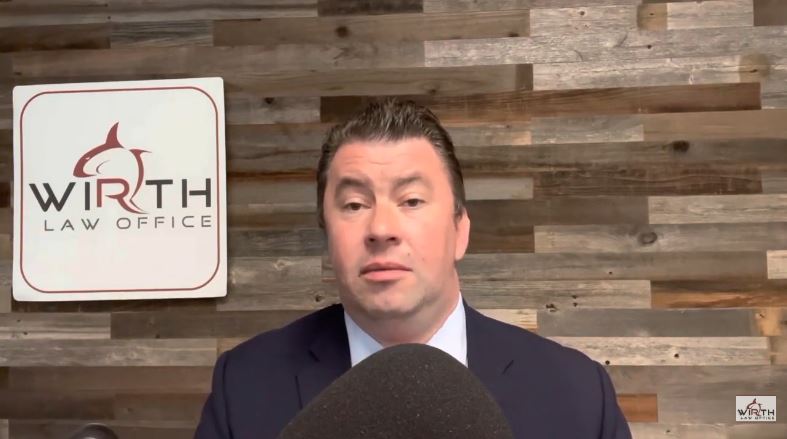Your Memory Is Your Strongest Ally

 Video Transcript: How can you be a good witness in your own criminal case? My name is Brian L. Jackson. I am a Tulsa attorney with the Wirth Law Office.
Video Transcript: How can you be a good witness in your own criminal case? My name is Brian L. Jackson. I am a Tulsa attorney with the Wirth Law Office.
I want to talk about how you can be a good witness in your own criminal case. And I’m not talking necessarily about testifying in court when I say being a good witness. What I’m saying is, remembering details and information that your attorney can use later to help in your defense. So I’ll give you some examples.
Let’s say that say you get stopped by the police. You’re walking down the street minding your own business. The cops stop you and frisk you, just like that, bam. And lo and behold, you did actually have something on you you shouldn’t have had.
Being your own best witness might be something like being able to remember the details about exactly how the encounter went down and being able to do, recite it precisely to your attorney. Because it may be that stop and frisk wasn’t authorized under the reasonable suspicion standard that applies to such a situation.
Maybe the cops had no right to touch you, and even if they did find something illegal on you, it’s not admissible in court, because the frisk was unauthorized. It was illegal. It might mean that something like remembering, did the cops read you your rights after they cuffed you and started questioning you? Did they read you your rights before they asked you questions? Because if they didn’t, that could be a Miranda violation.
It could be remembering precisely what it is you told that cop. Which should have been nothing. But if you did make a statement, exactly what did you tell that cop? Because these are all things that we need to know to help build your defense. And even if you’re never going to testify in court, you need to be able to recite the facts very carefully to your attorney, so that they can best advise you, best help you with trying to mitigate the damage, or maybe build you a defense that gets you, gets your case dismissed, or gets you an acquittal.
Certainly, anytime there’s like an arrest, you should, as quickly as you can, make a mental note. And if you have the opportunity, at some point after the arrest, to get a piece of paper and a pencil, write details down and try to keep that on you. Although be careful, because you don’t want to write anything down that could be potentially incriminating about you that could be seized by the jailers. But as soon as you’re able to safely write stuff down, you should try and do so while your memory is fresh, so that you can share that with your lawyer, and tell them, this is how the encounter went down, or did they not read me my rights? They searched my car. What predicated the search? Did I consent to it? Did I not consent to it? What did I tell the cop? Did I ask if I was free to go? All of these things.
Because any little detail like that could potentially mean the difference between evidence coming in or not to you, having to take a plea or getting a dismissal. Or it could mean you get acquitted at trial. I mean, it is possible just depending on exactly how it went down. So you want to be a really good witness for your attorney, so they have a really good picture of exactly what happened. And I do suggest, as long as you’re… I don’t know if you want to write stuff down in jail, because there is the risk that that could fall into the wrong hands, because they can confiscate things from you in jail.
But if you are in jail, as soon as you get out of jail, writing things down is a good idea to give to your attorney, so that you can have as much detail as possible, keep your memory fresh. And if you are facing any kind of a criminal charge, you do need a good attorney. One place you can find a good criminal defense lawyer in Oklahoma is it makelaweasy.com.



